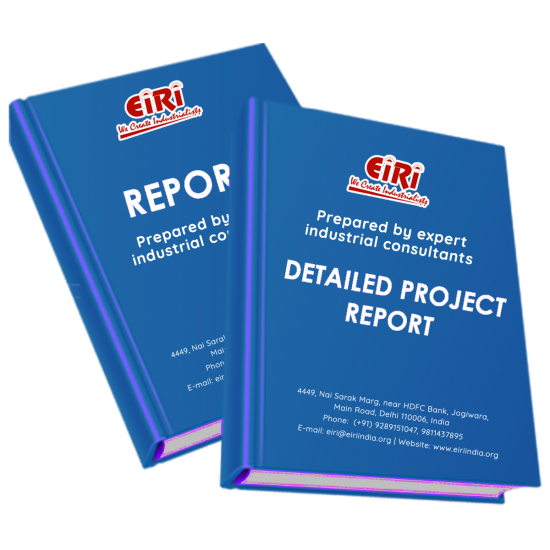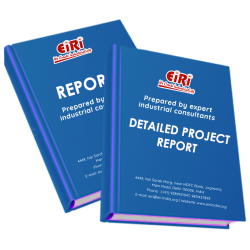Detailed Project Report on industrial salt (sodium chloride)

- More than 40 years of experience
- Managed by expert industrial consultants
- ISO 9001-2015 Certified
- Registered under MSME, UAM No: DL01E0012000
- 24/5 Research Support
Get your quesries resolved from an industry expert. Ask your queries before report or book purchase. - Custom Research Service
Speak to the our consultant to design an exclusive study to serve your research needs. - Quality Assurance
All reports are prepared by highly qualified consultants & verified by a panel of experts. - Information Security
Your personal & confidential information is safe & secure.
INDUSTRIAL SALT (SODIUM CHLORIDE)
(CODE NO.1926)
Salt is the common name for the substance sodium chloride (NaCI), which occurs in the form of transparent cubic crystals. Although salt is most familiar as a food supplement, less than 5% of the salt produced in the United States is used for that purpose. About 70% is used in the chemical industry, mostly as a source of chlorine. Salt is also used for countless other purposes, such as removing snow and ice from roads, softening water, preserving food, and stabilizing soils for construction.
The earliest humans obtained their salt from natural salt concentrations, called licks, and from meat. Those people who lived near the ocean may have also obtained it by chewing seaweed or from the natural evaporation of small pools of seawater. Meat became a more important source of salt as hunting was developed, as did milk when sheep, goats, horses, camels, reindeer, and cattle were domesticated. Even today, certain peoples—such as the Inuit of the far north, the Bedouin of the Middle Eastern deserts, and the Masai of east Africa—use no other form of salt.
As agriculture developed, leading to an increased population and a diet consisting mostly of plants, it became necessary to devise ways of obtaining salt in greater amounts. The earliest method of salt production was the evaporation of seawater by the heat of the sun. This method was particularly suited to hot, arid regions near the ocean or near salty lakes and is still used in those areas. Solar evaporation was soon followed by the quarrying of exposed masses of rock salt, which quickly developed into the mining of underground deposits of salt. Two thousand years ago the Chinese began using wells to reach underground pools of salt water, some of which were more than 0.6 miles (1.0 km) deep.
COST ESTIMATION
Plant Capacity 50.00 TON/day
Land & Building (2 Acres) Rs. 4.05 Cr
Plant & Machinery Rs. 2.80 Cr
W.C. for 2 Months Rs. 89.18 Lacs
Total Capital Investment Rs. 7.88 Cr
Rate of Return 21%
Break Even Point 64%
INTRODUCTION
CHEMISTRY OF SODIUM CHLORIDE
RAW MATERIALS
USES AND APPLICATION
BIS SPECIFICATION & INTERNATIONAL STANDARD
PROPERTIES & CHARACTERISTICS
OCCURRENCE OF SALT
MARKET SURVEY
WORLD DEMAND OF SALT
IMPORT & EXPORT STATISTICS OF SALT IN EUROPEAN UNION
GLOBAL PRODUCTION OF SODIUM CHLORIDE
PRESENT MANUFACTURE OF INDUSTRIAL SALT (SODIUM CHLORIDE)
METHOD OF SALT MANUFACTURE
MANUFACTURING PROCESS OF INDUSTRIAL SALT (SODIUM CHLORIDE)
PROCESS FLOW DIAGRAM
METHOD OF PROCESSING TO MANUFACTURE SODIUM CHLORIDE
NOVAL SODIUM CHLORIDE PRODUCTION PROCESS
RAW MATERIAL CALCULATION
PLANT LAYOUT
PRINCIPLES OF PLANT LAYOUT
PLANT LOCATION FACTORS
EXPLANATION OF TERMS USED IN THE PROJECT REPORT
SUPPLIERS OF PLANT & MACHINERIES
FILTER PRESS
SUPPLIERS OF PLANT AND MACHINERIES (IMPORTED)
SUPPLIERS OF RAW MATERIALS
APPENDIX – A :
1. COST OF PLANT ECONOMICS
2. LAND & BUILDING
3. PLANT AND MACHINERY
4. FIXED CAPITAL INVESTMENT
5. RAW MATERIAL
6. SALARY AND WAGES
7. UTILITIES AND OVERHEADS
8. TOTAL WORKING CAPITAL
9. COST OF PRODUCTION
10. PROFITABILITY ANALYSIS
11. BREAK EVEN POINT
12. RESOURCES OF FINANCE
13. INTEREST CHART
14. DEPRECIATION CHART
15. CASH FLOW STATEMENT
16. PROJECTED BALANCE SHEET
How to Make Project Report?
Detailed Project Report (DPR) includes Present Market Position and Expected Future Demand, Technology, Manufacturing Process, Investment Opportunity, Plant Economics and Project Financials. comprehensive analysis from industry covering detailed reporting and evaluates the position of the industry by providing insights to the SWOT analysis of the industry.
Each report include Plant Capacity, requirement of Land & Building, Plant & Machinery, Flow Sheet Diagram, Raw Materials detail with suppliers list, Total Capital Investment along with detailed calculation on Rate of Return, Break-Even Analysis and Profitability Analysis. The report also provides a birds eye view of the global industry with details on projected market size and then progresses to evaluate the industry in detail.
We can prepare detailed project report on any industry as per your requirement.
We can also modify the project capacity and project cost as per your requirement. If you are planning to start a business, contact us today.
Detailed Project Report (DPR) gives you access to decisive data such as:
- Market growth drivers
- Factors limiting market growth
- Current market trends
- Market structure
- Key highlights
Overview of key market forces propelling and restraining market growth:
- Up-to-date analyses of market trends and technological improvements
- Pin-point analyses of market competition dynamics to offer you a competitive edge major competitors
- An array of graphics, BEP analysis of major industry segments
- Detailed analyses of industry trends
- A well-defined technological growth with an impact-analysis
- A clear understanding of the competitive landscape and key product segments
Need Customized Project Report?
- Ask for FREE project related details with our consultant/industry expert.
- Share your specific research requirements for customized project report.
- Request for due diligence and consumer centric studies.
- Still haven't found what you're looking for? Speak to our Custom Research Team
About Engineers India Research Institute:
Note: We can also prepare project report on any subject based on your requirement and country. If you need, we can modify the project capacity and project cost based on your requirement.
Our Clients

Our Approach
- Our research reports comprehensively cover Indian markets (can be modified as per your country), present investigation, standpoint and gauge for a time of five years*.
- The market conjectures are produced on the premise of optional research and are cross-accepted through associations with the business players
- We use dependable wellsprings of data and databases. What's more, data from such sources is handled by us and incorporated into the report
Why buy EIRI reports?
- Our project reports include detailed analysis that help to get industry Present Market Position and Expected Future Demand.
- Offer real analysis driving variables for the business and most recent business sector patterns in the business
- This report comprehends the present status of the business by clarifying a complete SWOT examination and investigation of the interest supply circumstance
- Report gives investigation and top to bottom money related correlation of real players/competitors
- The report gives gauges of key parameters which foresees the business execution





















